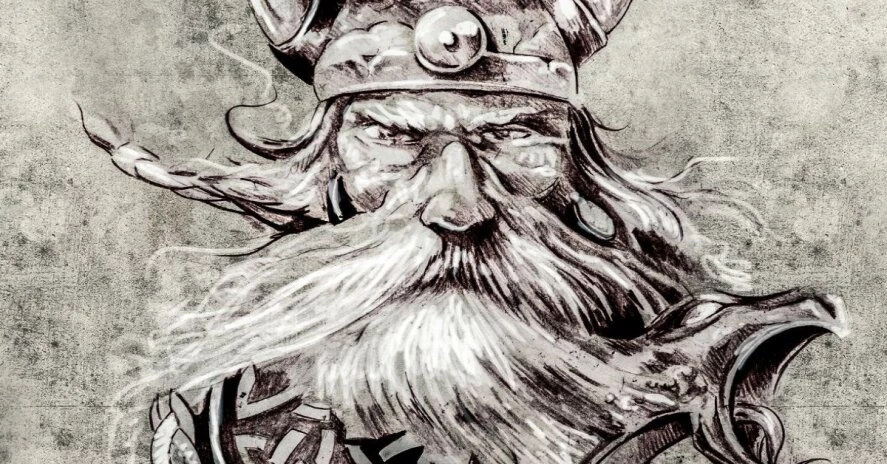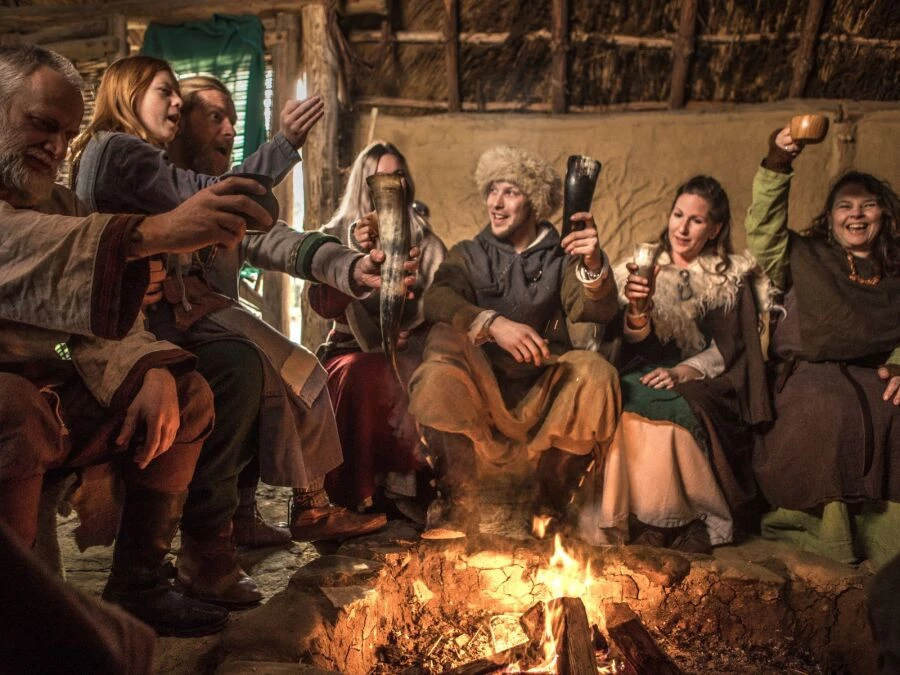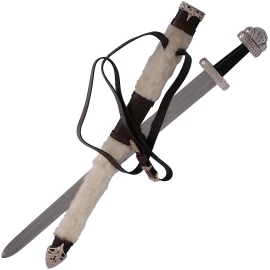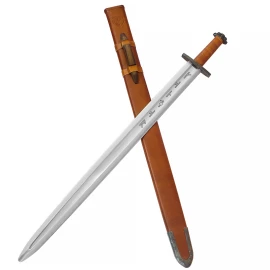Mighty Rulers of Asgard: The 4 Most Powerful Norse Gods

Norse mythology was an integral part of the Viking culture. Many historical sources suggest that the Vikings worshipped as many as sixty gods: some of them played only a marginal role in the ancient Norse mythology, others became a central part of it. Have a look at the names of four of the most famous Norse gods, whose deeds have been remembered by many generations of (not only) Vikings.
One of our previous articles was dedicated to a handful of famous Vikings who have become “immortal” only in a figurative sense - their deeds and lives left an indelible mark on European history.
But in this article, we will have a look at the inhabitants of Asgard, believed by the Vikings to be truly immortal. Here they are.
1. Odin
Odin was the supreme god of Norse mythology - the god of war, magic and death. He was the father of all gods, and he ruled over Valhalla, known as the “the hall of the slain”. Furthermore, he created the realm of mankind called Midgard.
But it wasn’t all these things that earned him respect of all the other gods as well as humans. Surprisingly, it wasn't his power or physical strength, either. Odin was revered and admired for being wise and cunning, the qualities he had shown several times during his adventures.
But the Vikings weren’t the first to worship him, or at least what he represented. The Roman historian Tacitus noticed as early as the 1st century AD that “one of the most important gods of the Germanic pantheon” was strikingly similar to the Greek god of war, Mercury. According to scholars, Tacitus was probably referring to Odin, also known as Woden.
Archaeological findings also support this theory. The Brakteat, a simple metal coin dating from between the 4th and 6th centuries AD, depicts a warrior on horseback. The runes around the edges of the coin suggest that he is “Odin's man”. We can conclude that the worship of the god of war is older than the “Golden Age” of the Vikings.
2. Thor
The god of thunder, as well as fine weather and fertility. Many of us may know Thor from the Marvel Cinematic Universe, portrayed by Chris Hemsworth. But unlike the fair-haired actor, the “real” Thor was described as having red beard and hair.
But one thing the movie and Norse mythology can agree on: Thor was a mighty warrior. According to Norse legends, Thor wielded the hammer Mjölnir, a fearsome weapon that could challenge the giant serpent Jörmungandr, or crush the head of the giant Hrungnir.
But Thor was not only known for his immense strength, but also for his love of celebration and feasting. The god of thunder was said to have a huge appetite - he was once able to eat two entire oxen, washing it all down with mead. He travelled in a chariot pulled by two goats. When hungry, he could eat the goats and bring them back to life on the next day.
The Vikings held Thor in high regard. On their expeditions, many Viking warriors wore a pendant in the shape of Thor's hammer to help them overcome obstacles during the journey, and to give them courage in battle.
DID YOU KNOW... Thor left marks in the English language? Some linguists believe that Thursday originates from Thor's-day, and that the name of the day is inspired by Thor, the god of thunder.
3. Freya
The third name on our list of powerful Norse gods is Freya, the goddess associated with love, beauty and fertility. In mythology, Freya has many names, including Freyja, Vanadís or Gefn. However, the same names were sometimes used for her handmaidens.
Freya's name stems from Proto-Germanic feminine noun frawjōn and means 'lady, mistress’. The German word Frau (woman) also stems from it, as well as the English word Friday (Freya's day).
Freya loved gold jewellery. She was the owner of the powerful necklace Brísingamen, forged by the most skilled of dwarven smiths.
Very little is known about the bracelet, but it was undoubtedly a beautiful (and perhaps magical) artefact. The trickster Loki even stole Freya's necklace once.
4. Loki
The god of mischief, trickery, and deception - Loki did not have the best reputation. Loki was a complex character, a mystery to gods and men alike. He was neither good nor evil, sometimes friendly with gods, sometimes engineering evil plans against them.
Loki's offspring was also rather controversial: with the giantess Angrboða, Loki gave life to Hel, the daughter of the underworld. He was also a father to the world serpent Jörmungandr, and the wolf Fenrir. Loki was a shape-shifter, able to take on an animal form, such as a mare, a salmon or a fly.
Loki's tricks were foretold to end with Ragnarök. According to stories in Norse mythology, he will stand alongside the giants in the epic mythological battle at the end of the world. Loki and his enemy Heimdall are fated to fight to death during the events of Ragnarök. Heimdall is the watchman of Asgard, guarding the bridge Bifrost which connects Asgard with Midgard
DID YOU KNOW... weapons accompanied the Vikings on their journey to the afterlife? The warriors were often buried with their weapons and armour. Read more interesting facts about Viking weapons and armour and the lives of Viking warriors.
Dress Like a Viking
Are you a historical reenactor and do you want to stand out on the battlefield with your costume? Get a perfect historical outfit and fine-tune it with preferred accessories.
You'll need Viking clothing, and a Viking knife (called seax), which will come in handy during the battle as well as at the feast after it. Speaking of feasts, don't forget to get a Viking drinking horn for mead. Skål!





Comments